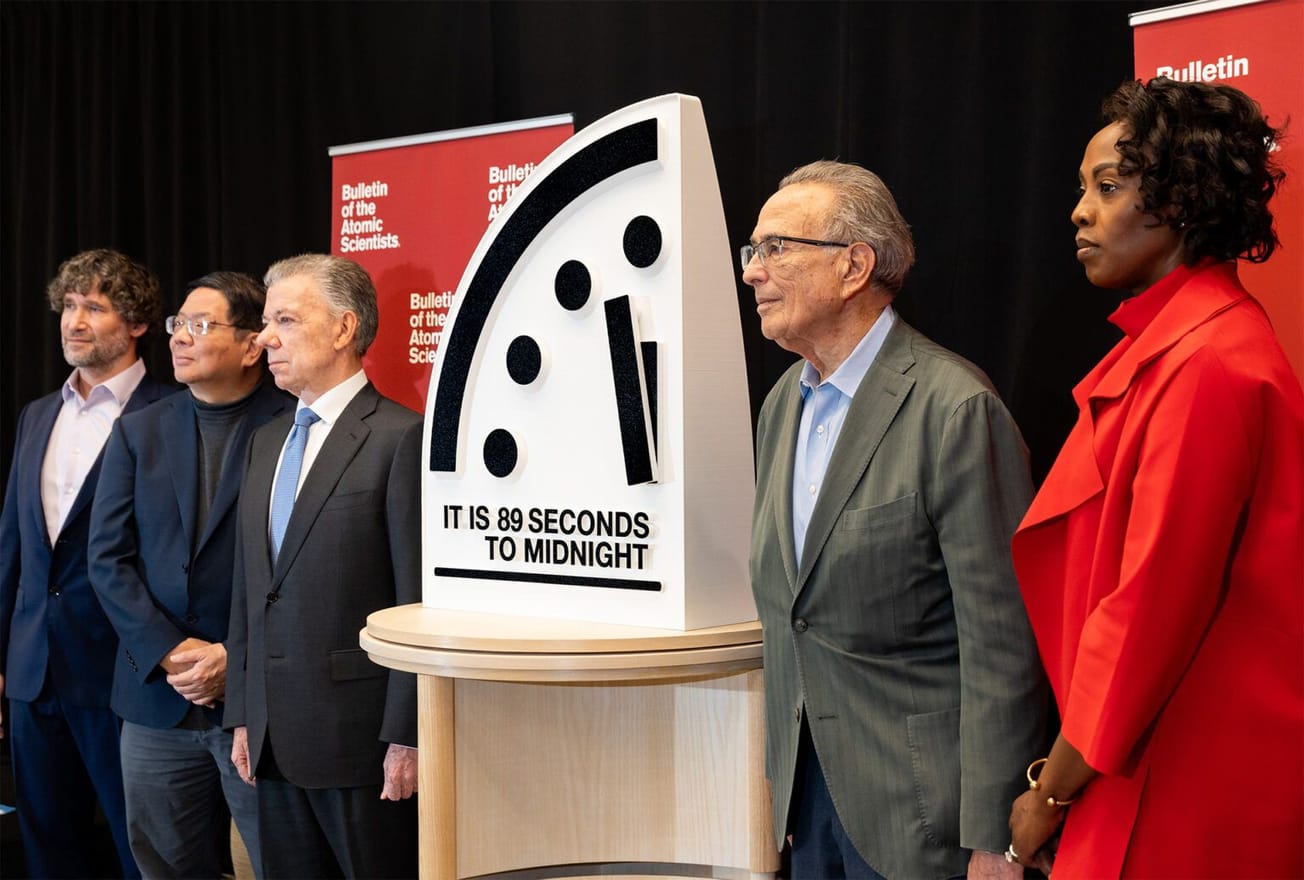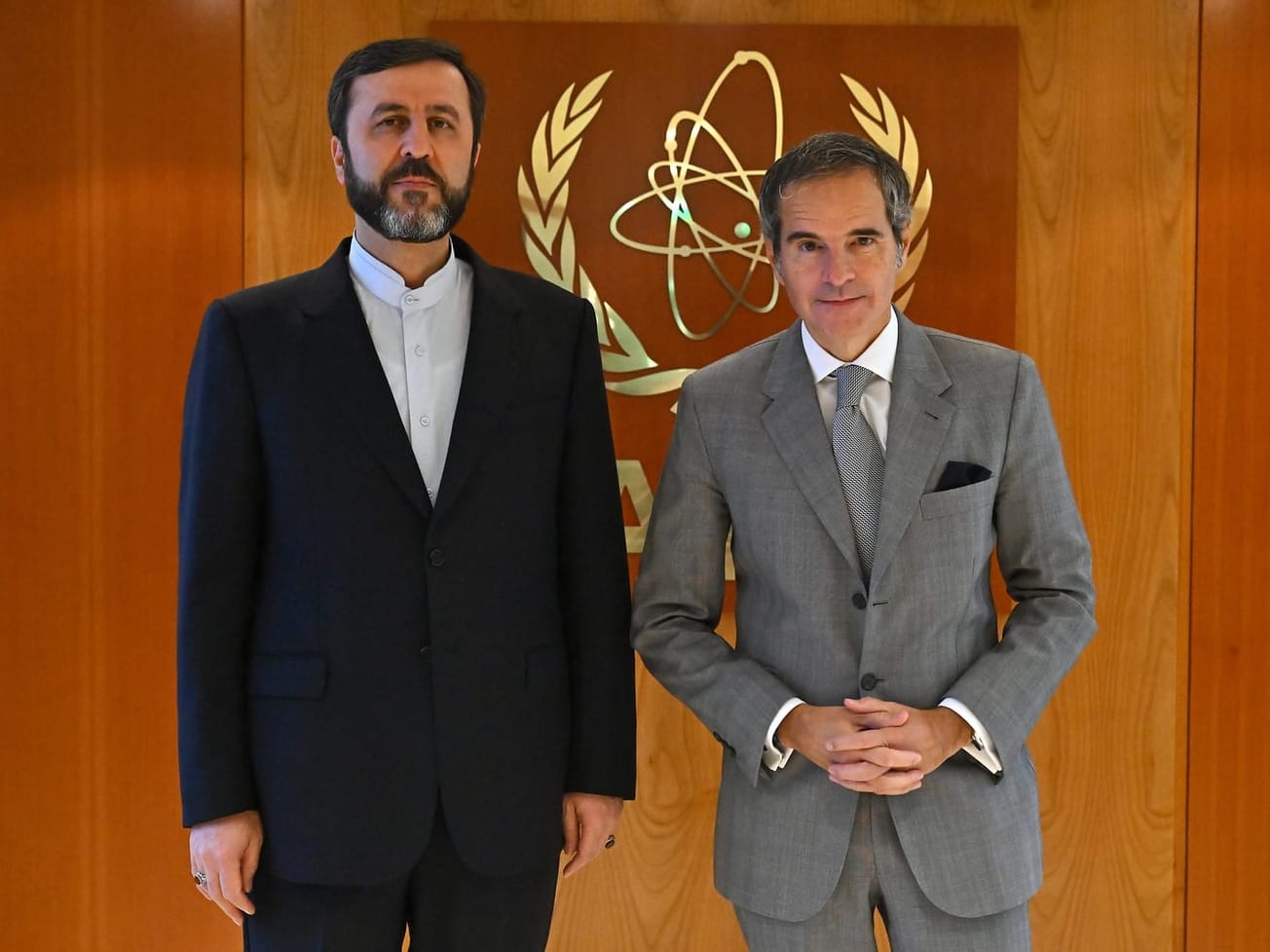VIENNA (AN) — Two nuclear watchdogs declared themselves prepared to carry out the monitoring and verification North Korea would need to fulfill its renewed vow for denuclearization.
The two Vienna-based international organizations — the International Atomic Energy Agency, or IAEA, and the Preparatory Commission for the Comprehensive Nuclear-Test Ban Treaty Organization, or CTBTO — offered to dispatch teams of international inspectors and other experts to North Korea.
IAEA's Director General Yukiya Amano said he welcomed a joint statement from the Singapore summit on Tuesday between U.S. President Donald Trump and North Korean leader Kim Jong Un. Amano noted that North Korea, officially the Democratic People's Republic of Korea, or DPRK, committed itself anew to the goal of "complete denuclearization" on the Korean Peninsula.
"The IAEA will closely follow the negotiations to be held between the two countries to implement the outcomes of the U.S.-DPRK Summit," Amano said. "The IAEA stands ready to undertake any verification activities in the DPRK that it may be requested to conduct by the countries concerned, subject to authorization by the IAEA’s board of governors."
Such authorization would require a comprehensive deal with details on how North Korea's nuclear weapons development and testing programs could be properly dismantled. However, the summit text essentially was an agreement to keep talking.
In that regard, it recalled previous commitments by North Korea that were later abandoned. In 2005, North Korea said, for example, it was "committed to abandoning all nuclear weapons and existing nuclear programs and returning, at an early date, to the Treaty on the Nonproliferation of Nuclear Weapons and to IAEA safeguards."
CTBTO's Executive Secretary Lassina Zerbo nonetheless welcomed the Trump-Kim summit.
"This positive and direct dialogue should be heralded as a truly significant step forward for international peace and stability," he said. "I am hopeful that today’s summit will provide a basis for progress toward verifiable denuclearization of the Korean Peninsula."
Scant details on security changes
Zerbo said his organization, if invited, would "support any verification activities for the permanent closure" of North Korea's Punggye-ri Nuclear Test Site.
"We are here to contribute when we can and where we should," he said. "Our expertise includes: site characterization; site closure verification; post site closure and dismantlement verification; and ongoing remote monitoring."
Though the summit text was brief and non-specific, Trump described it as "pretty comprehensive" and said it committed the United States to providing "security guarantees" to North Korea in exchange for a "firm and unwavering commitment to complete denuclearization of the Korean Peninsula."
Trump said he had agreed to halt U.S. military exercises with ally South Korea while negotiations between the United States and North Korea continue, which he justified as a measure that would save U.S. taxpayers' money. North Korea has repeatedly claimed the exercises pose a security threat.
No specific details were included on how denuclearization or a peace treaty might be achieved that would bring about a technical end to the Korean War and result in North Korea's expanded participation among international organizations.
International sanctions against North Korea, approved by the U.N. Security Council, remain unaffected by the text. China's foreign ministry spokesman Geng Shuang told a daily press briefing that those sanctions can be adjusted or lifted if North Korea follows and respects the Security Council's resolutions.
Trump said in a televised ceremony he believed the United States' relationship with North Korea and the Korean Peninsula will become different than in the past. He boasted about a four-minute U.S. video — packed with cliché, propagandist images of global symbols — that he showed to Kim at the summit. It portrayed the two leaders as national heroes, seizing an opportunity to make history together.
“I think he loved it,” said Trump, who also showed Kim the presidential armored limousine known as the “Beast” that is flown around the world on a military cargo plane. Kim had to borrow a Chinese jet to reach Singapore.
Trump spent much of last year bullying Kim as a "short and fat" leader, a "madman" and North Korea's "Little Rocket Man." During that time, Kim swapped barbs with Trump, labeling America's president a “mentally deranged U.S. dotard" while having a prolific year of missile and nuclear weapon tests.
“We had a historic meeting and decided to leave the past behind,” Kim said after the Singapore summit. "The world will see a major change.”
Despite the halt in U.S.-South Korean military exercises, South Korea's President Moon Jae-In praised the agreement.
"This is just a beginning and there may be many difficulties ahead, but we will never go back to the past again and never give up on this bold journey," he said.
Unprecedented moment! The world cheers as we all watch the historic moment President Trump shook hands with Mr Kim: Hope against all hopes for int’l peace & stability through progress in #denuclearization talks & prospects for #CTBT #NPT #Disarmament #NonProliferation pic.twitter.com/Xk21fJUcVM
— Lassina Zerbo (@SinaZerbo) June 12, 2018
Challenges ahead
The CTBTO's Zerbo hailed the "unprecedented" and "historic" moment when Trump and Kim publicly appeared together and shook hands — in front of alternating U.S. and North Korean national flags that strangely blended together, because they each have stars and stripes and are red, white and blue.
But after their historic handshake, Zerbo said, the two leaders would need to go beyond "diplomatic courtesy" and reach an "agreement in principle that prepares the bases for adherence to international treaties" and also "the beginning of a process of irreversible and verifiable denuclearization."
That did not happen, according to Richard Haass, president of the Council on Foreign Relations, the nearly century-old American think tank. He said Trump conceded too much and got little in return.
"The Singapore summit statement is essentially aspirational: no definitions of denuclearization, no timelines, no details as to verification, " Haass said, adding he was most troubled that Trump relinquished carrying out the military exercises.
Even if there were an extensive and detailed agreement, the two international organizations offering to monitor and verify denuclearization would face some major political hurdles on the Korean Peninsula.
Zerbo's organization has been in limbo for more than two decades awaiting more countries to sign and ratify the Comprehensive Nuclear-Test-Ban Treaty negotiated in Geneva from 1994 to 1996. Though 180 nations signed it and 166 ratified, more nuclear-capable nations must join before the treaty takes effect.
Until that happens, the organization is called the Preparatory Commission for the Comprehensive Nuclear-Test-Ban Treaty Organization, which promotes the treaty and prepares for the day it enters into force. Most of its 337 international monitoring facilities around the world already have been put in place.
So-called six-party talks began in 2003 between China, Japan, North Korea, Russia, South Korea, and the United States. Two years after their 2005 statement — in which North Korea pledged to abandon all nuclear weapons and existing nuclear programs and return to the Nuclear Nonproliferation Treaty, or NPT, and to abide by IAEA safeguards — the nations agreed on steps to fulfill that pledge.
But that was the last time IAEA's inspectors were sent to North Korea. In 2007, they went to examine the main nuclear complex at Yongbyon, north of Pyongyang. After the six-party talks broke down in 2009 over disagreements on verification and a rocket launch, North Korea expelled the international inspectors, withdrew from six-party talks in Beijing and resumed its nuclear enrichment program.
The world is closely watching what will take place in Singapore in a few hours’ time.
— United Nations (@UN) June 11, 2018
I commend the leaders of the Democratic People’s Republic of Korea & the United States for pursuing a diplomatic solution.
-@antonioguterres #SingaporeSummit https://t.co/il6BOAfaAW
A show of missiles
North Korea has launched 23 missiles, including some that in theory could strike the U.S. mainland, and carried out six nuclear tests. The last bomb it tested had an explosive yield estimated at 160 kilotons, which is several times stronger than the one the United States dropped on Hiroshima in 1945.
Before the summit, the United States tried different policies and at least two major diplomatic initiatives to persuade North Korea to scrap its nuclear weapons program in exchange for humanitarian aid. United Nations Secretary-General Antonio Guterres assured reporters on Monday that the two U.N.-affiliated organizations in Vienna can play a role in North Korea.
"Relevant parts of the United Nations system stand ready to support this process in any way, including verification if requested by the key parties. They are the protagonists," Guterres said.
"The International Atomic Energy Agency has a mandate to apply safeguards on all nuclear material in peaceful use, including all material removed from military programs," he said. "The Comprehensive Nuclear-Test Ban Treaty Organization could also play an important role in monitoring the DPRK’s announced moratorium on nuclear explosive tests."
IAEA's Amano told reporters earlier this month his organization would be ready to resume its nuclear verification activities in North Korea.
“We continue to enhance our readiness to play an essential role in verifying the DPRK’s nuclear program if a political agreement is reached among countries concerned," he told a meeting of IAEA’s board of governors last week.
Guterres commended Trump and Kim for pursuing a diplomatic solution, saying they "are seeking to break out of the dangerous cycle" of undiplomatic feuding that alarmed the world last year.
"Peace and verifiable denuclearization must remain the clear and shared goal," said Guterres. "The Security Council has consistently underlined its desire for a peaceful, diplomatic and political solution to the situation, as well as urging further work to reduce tensions."








